Presentation
The five research teams in NeuroDiderot neuroscience laboratory work on understanding the mechanisms that disrupt the functioning of the developing brain from the fetus to adolescence, whether the origins of dysfunctions are genetic or acquired (such as infections or physical trauma, for example), and whether the diseases are common or affect only a small number of patients (rare diseases).
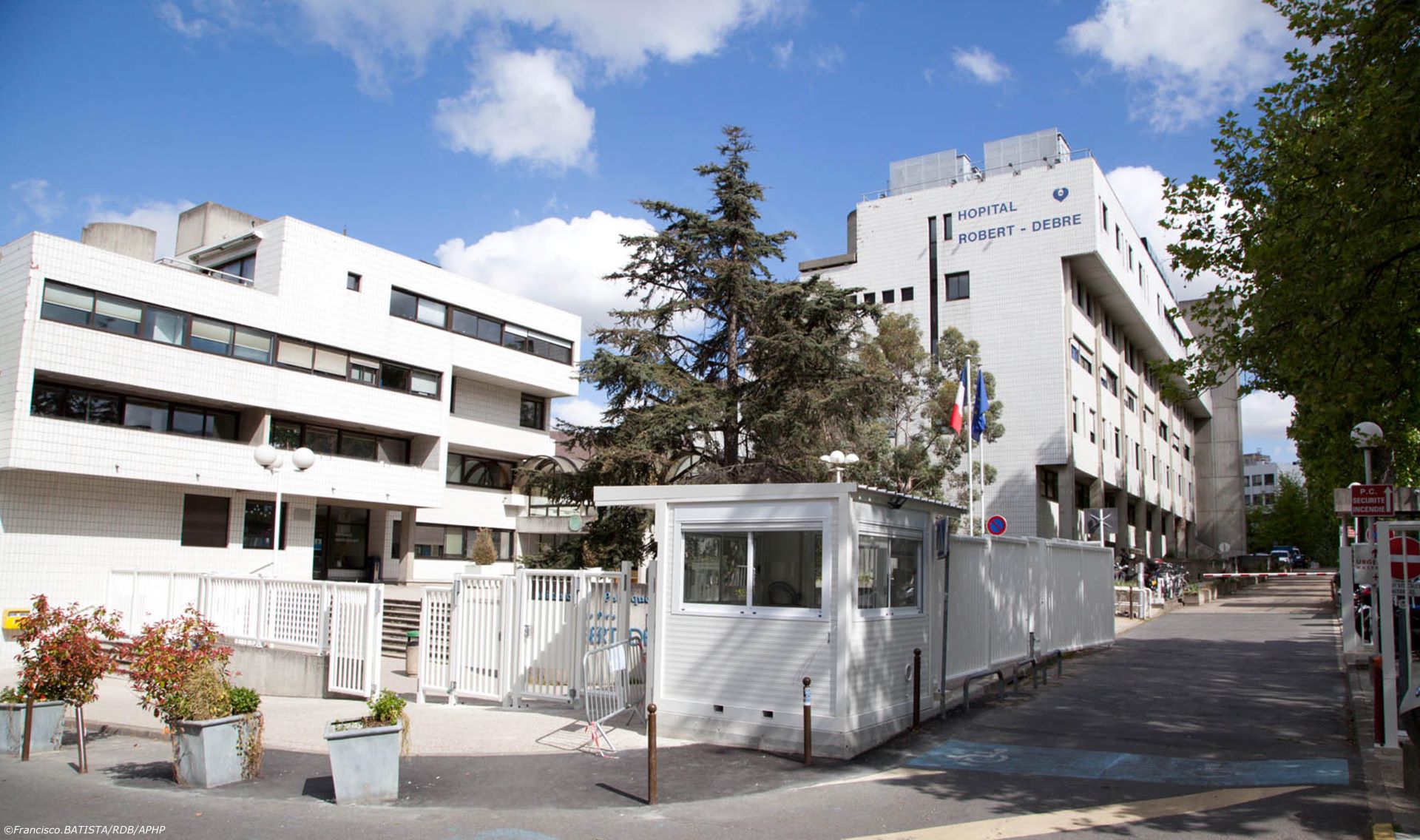
Hôpital Robert Debré, Paris
Les activités de l’unité de recherche NeuroDiderot sont menées sur le site de l’Hôpital Robert Debré et en étroite collaboration avec d’autres structures de recherche franciliennes.
© Francisco Batista, Hôpital Robert Debré – Assistance Publique des Hôpitaux de Paris
Overarching goals
Clinical and basic research on neurodevelopmental and neurovascular disorders are a key public health priority in Western countries and form the central focus of our project. NeuroDiderot aims to establish a cohesive and integrated network of research teams and clinical structures that use modern experimental approaches and evaluation tools to improve our understanding of key issues in the area of neurodevelopmental and neurovascular disorders, through an improved understanding of normal neurodevelopment. NeuroDiderot is ideally placed not only to contribute to both basic and clinical research in these areas, but also to ensure the dissemination of this knowledge to biomedical students and to the medical and research community.
Building on our previous research experience, our research is translational in nature, from basic research to transfer to the clinic (Figure 1). This translational feature is naturally fostered by interactions between researchers with expertise in developmental neurobiology, neurovascular diseases, behavior, cognitive neurosciences, neurophysiology and biochemistry, neuroimaging, neurogenetics and pharmacology, as well as physicians from several departments of Robert Debre and Lariboisiere Hospitals specialized in the management of neurodevelopmental and neurovascular disorders. The participation of several members in three “Fédérations hospitalo-universitaires” (FHUs, co-established by the Assistance Publique – Hôpitaux de Paris, the Inserm and Université Paris Cité) and in two RHU projects (“Recherche Hospitalo-Universitaire”; “Programme Investissement d’Avenir”) further strengthen the link between researchers and clinicians, and the ultimate application of our work. The NeuroDiderot network further enhances the partnership between researchers and clinicians of the two hospitals and those developing state-of-the-art MRI technology, thanks to the inclusion of NeuroSpin, CEA-Saclay, as Team 5 of the future Unit. The multidisciplinary expertise of the teams, ranging from the biology of neural precursors and neuroglial interactions to the functioning of the neurovascular unit, along with the technological know-how required for their exploration, will allow the Unit to develop novel therapeutic strategies for a wide variety of neurodevelopmental and neurovascular disorders, from the basic research stage to clinical care.
Scientific policy
Our Unit operates at the interface between basic research and its transfer to the clinic, and brings together Inserm, APHP, Université Paris Cité, Université Sorbonne Paris Nord, CNRS, and CEA researchers with expertise in developmental neurobiology, neurovascular disorders, epilepsy, neurogenetics, neuroimaging, neurotoxicology, behavior, physiology, biochemistry, pharmacology, and bioinformatics with academic physicians from several departments of Robert Debre and Lariboisiere Hospitals, including the Child Neurology and Inherited Metabolic Diseases, Neurology, Neurogenetics, Obstetrics, Endocrinology, Ear-Nose-Throat, Genetics, Cytogenetics, Fetopathology, Neuropathology, Imaging and Physiology Departments as well as the NICU and PICU and Emergency services. This unique association makes it possible to adopt a truly multidisciplinary approach to disorders affecting the developing brain and neurovascular disorders touching small vessels, while ensuring the optimal transfer of research from the bench to the patient’s bedside. In addition, dedicated structures and projects at Robert Debre Hospital (Center for Clinical Investigation –CIC-, Epidemiology Center -CIC-EC-, and FHU I2-D2, led by P Gressens), Lariboisiere Hospital (FHU NeoVasc led by H Chabriat, RHU TRT_cSVD led by H Chabriat, Centre for Biological Resources led by P Mannivet) and NeuroSpin (high-field MRI), the PremUP network (led by P Gressens; https://www.premup.org/fra/accueil), and close links with numerous associations of patients and parents of patients greatly facilitate this translational approach. Our research focus (translational research on neurodevelopmental disorders and diseases of small brain vessels) is unique in France. Several researchers of the Unit are national and international leaders in their fields as demonstrated by numerous high profile publications and invited international conferences as well as Horizon 2020, ERA-NET Neuron, Transatlantic (Leducq Foundation), FHU and RHU grants (please see Excel file).
À lire aussi
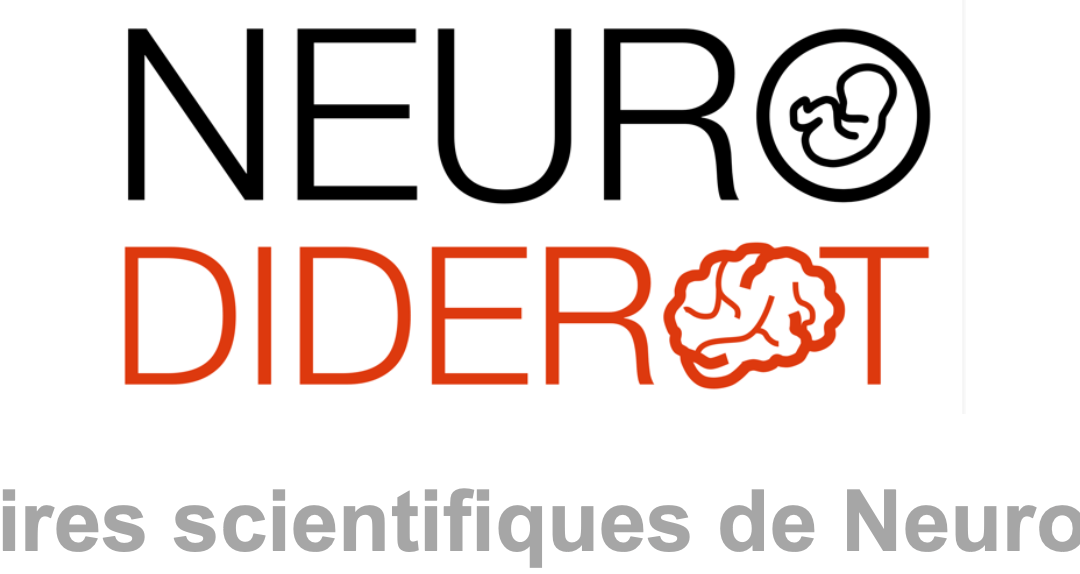
Conference Dr. Boris Chaumette
Seminaire Dr Boris Chaumette
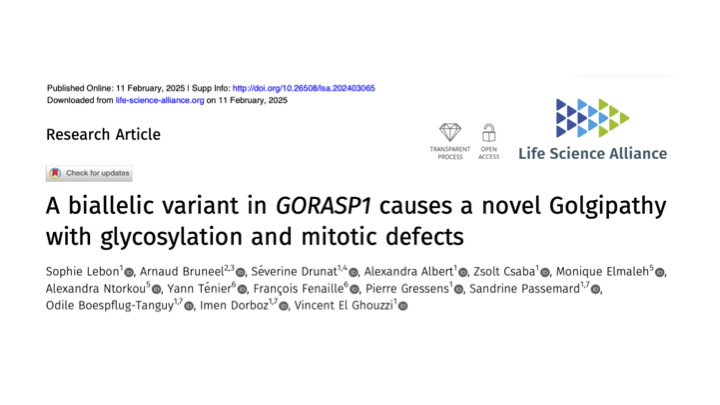
New Golgipathy identified in NeuroDev team
The NeuroDev team publishes an article in Life Science Alliance [1] identifying the first human pathogenic variant of GORASP1, the gene encoding the Golgi stacking protein GRASP65, and demonstrating its consequences on glycosylation and mitotic progression. [1] S....
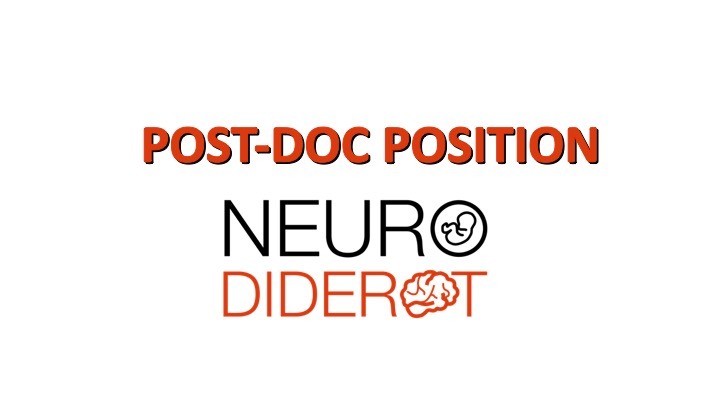
Post-doc opportunity (1-2 years) within the group “Mitochondria and NDD” in the NeuroDev team
POSITION DESCRIPTION Postdoctoral position in the field of Neurosciences Type of contract: temporary position (CDD) Contract/project period: 1-2 years Expected date of employment: 1.04.2025 Proportion of work: 100% Workplace: Université Paris Cité, Inserm,...
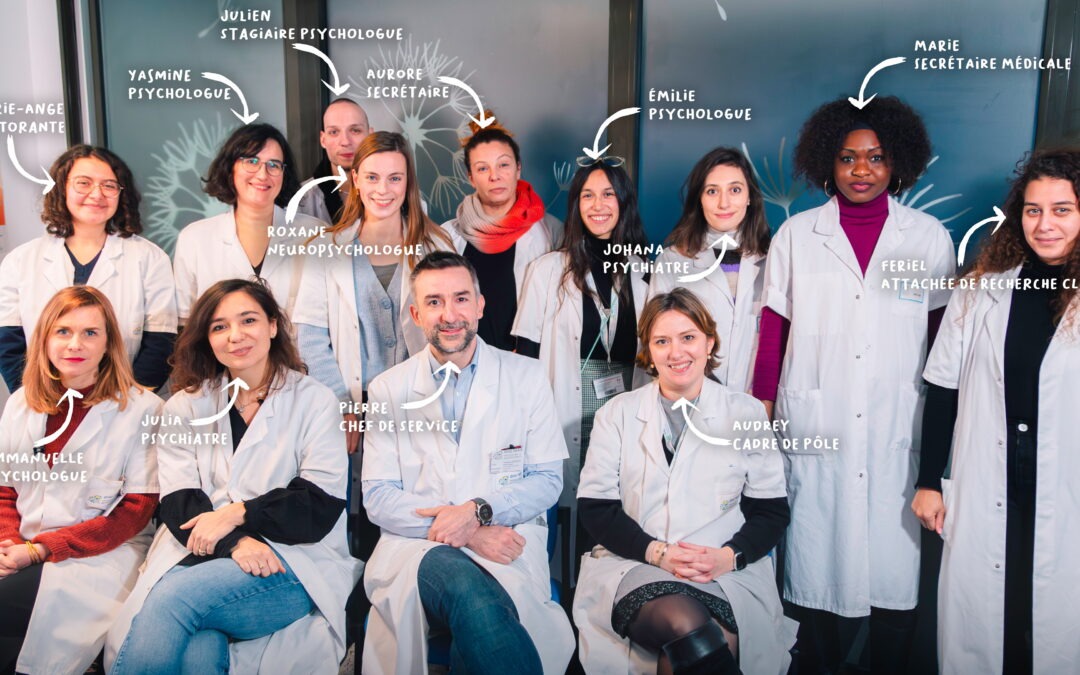
Advancing psychiatry through Sleep and Chronobiology research
The “Mood” research axis of the SleepCmd team is dedicated to understanding the intricate links between sleep, circadian rhythms, and mood disorders such as depression, bipolar disorder, seasonal affective disorder, and suicide. Using state-of-the-art methods, the...
